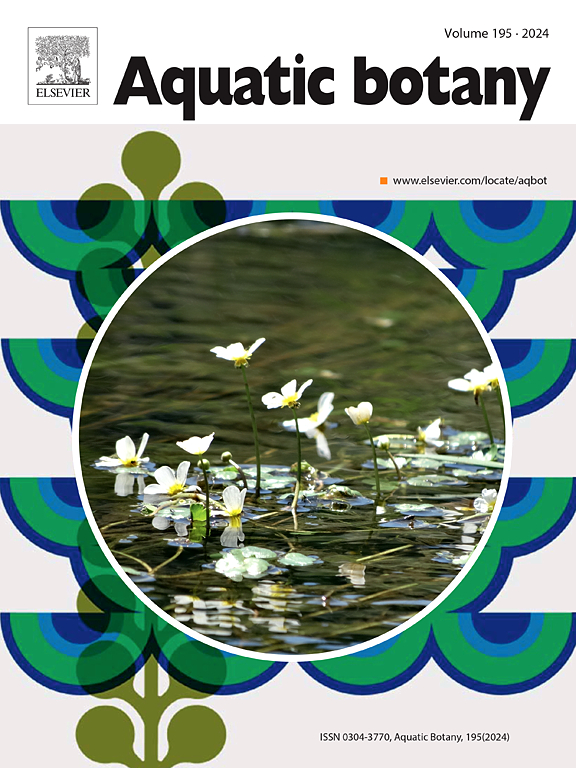虚拟特刊编辑:植物在调节水生甲烷通量中的作用
IF 1.9
4区 生物学
Q2 MARINE & FRESHWATER BIOLOGY
引用次数: 0
摘要
甲烷(CH4)是一种强效温室气体(GHG)--非化石源的 CH4 在 100 年时间尺度上的全球升温潜能值(GWP)为 27.0,对气候变化有很大影响。排放到大气中的甲烷约有一半来自水生系统。虽然对水生生态系统甲烷排放量的估算存在很大的不确定性,但对植被覆盖的水生区域甲烷排放量的估算则更加不确定。这与排放强度和水生植被区域面积的不确定性有关。本文章由计算机程序翻译,如有差异,请以英文原文为准。
Editorial for the virtual special issue: The role of plants in regulating aquatic methane fluxes
Methane (CH4) is a potent greenhouse gas (GHG) - CH4 of non-fossil origin has a global warming potential (GWP) of 27.0 on a 100-year time scale -and strongly contributes to climate change. Approximately half of the CH4 emitted to the atmosphere originates from aquatic systems. While the estimate of aquatic CH4 commissions comes with large uncertainties, this applies even more for the contribution of CH4 emissions from vegetated aquatic areas. This is related to uncertainties in both the emission intensities as well as the areal extent of vegetated aquatic areas.
求助全文
通过发布文献求助,成功后即可免费获取论文全文。
去求助
来源期刊

Aquatic Botany
生物-海洋与淡水生物学
CiteScore
3.80
自引率
5.60%
发文量
70
审稿时长
6 months
期刊介绍:
Aquatic Botany offers a platform for papers relevant to a broad international readership on fundamental and applied aspects of marine and freshwater macroscopic plants in a context of ecology or environmental biology. This includes molecular, biochemical and physiological aspects of macroscopic aquatic plants as well as the classification, structure, function, dynamics and ecological interactions in plant-dominated aquatic communities and ecosystems. It is an outlet for papers dealing with research on the consequences of disturbance and stressors (e.g. environmental fluctuations and climate change, pollution, grazing and pathogens), use and management of aquatic plants (plant production and decomposition, commercial harvest, plant control) and the conservation of aquatic plant communities (breeding, transplantation and restoration). Specialized publications on certain rare taxa or papers on aquatic macroscopic plants from under-represented regions in the world can also find their place, subject to editor evaluation. Studies on fungi or microalgae will remain outside the scope of Aquatic Botany.
 求助内容:
求助内容: 应助结果提醒方式:
应助结果提醒方式:


